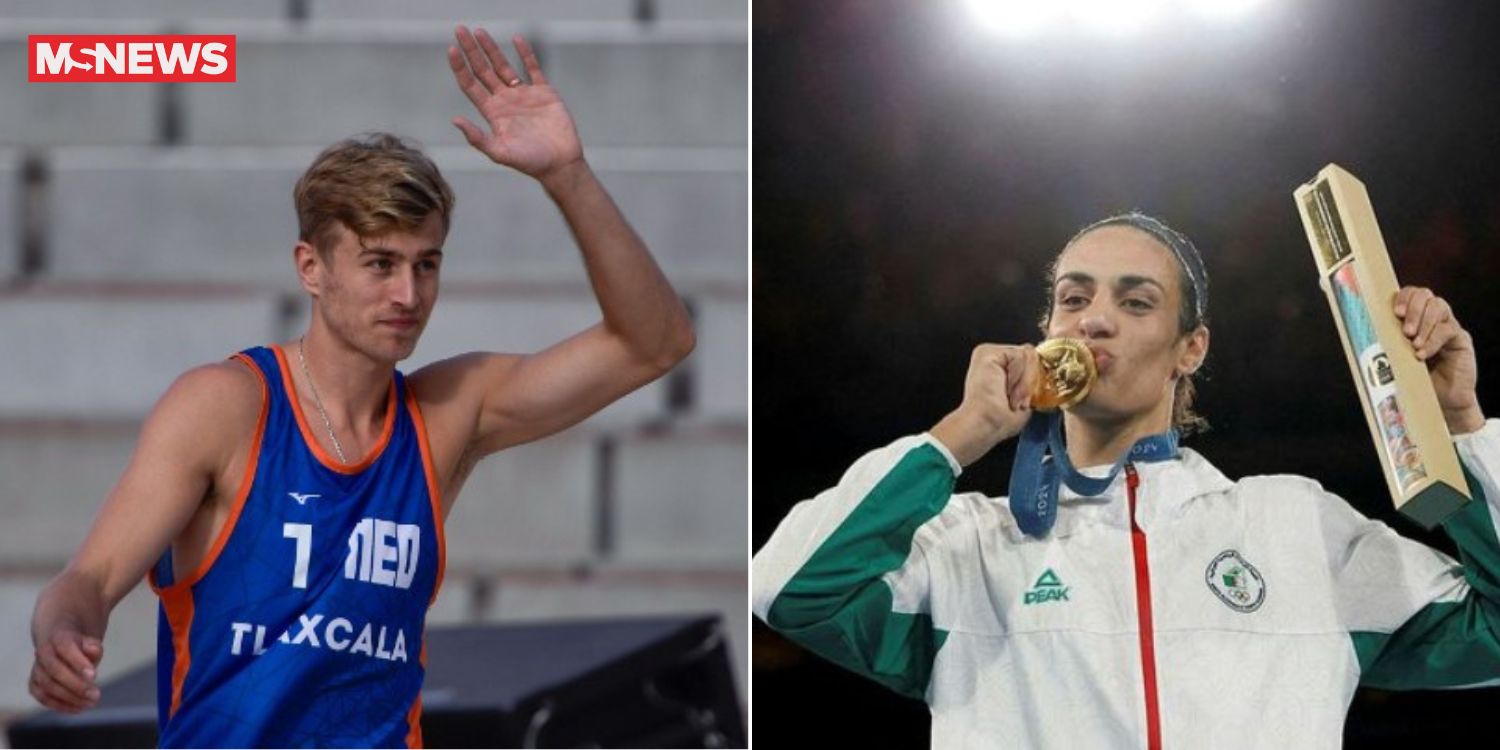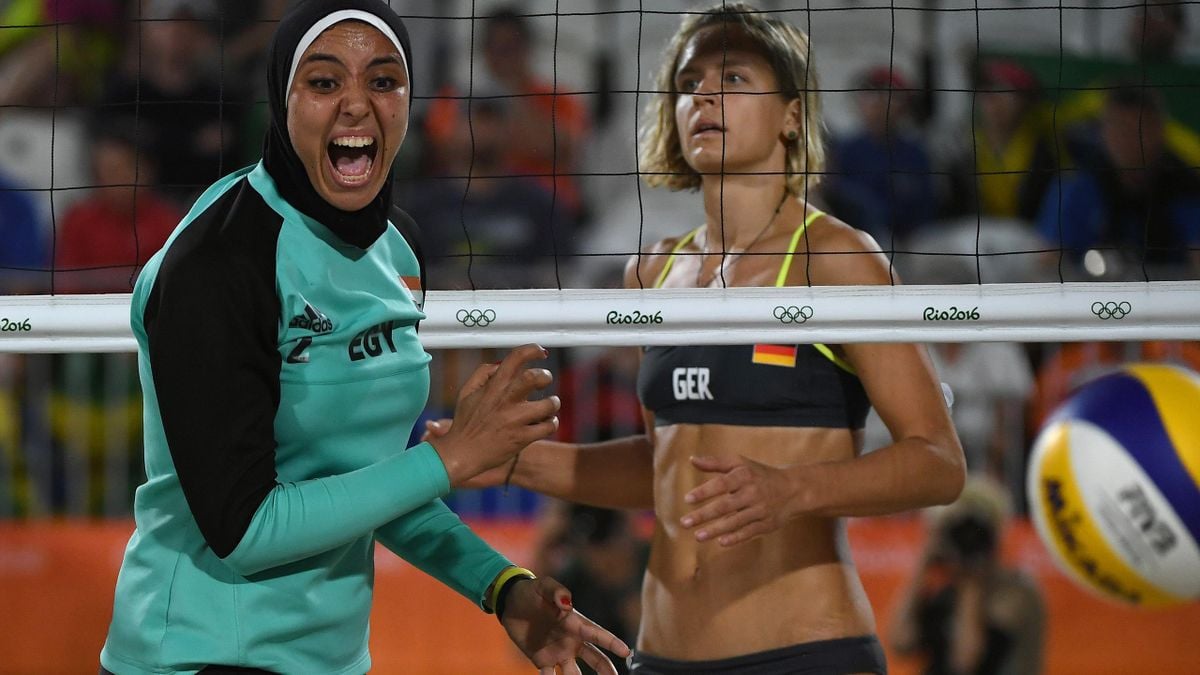Biggest controversies from the 2024 Paris Olympics
Amongst the many moments of joy, laughter, and tears at the recently concluded Paris Olympics, there were several controversies that, some may say, sullied the games.
Outrage ensued when it was discovered that a Dutch Olympian was a convicted rapist. Even the facilities at the Olympic Village came under fire for allegedly being sub-par.
Here are eight of the biggest upsets that rocked the stage of the world’s biggest sports meet.
1. ‘The Last Supper’: The “disrespectful” opening ceremony
The controversies began on the very first day during the opening ceremony of the Paris Olympics 2024 at the Seine River, a hallmark of the city.
However, the incredible location did not compensate for the controversial opening ceremony.
One particular segment — involving Parisian drag queens supposedly reenacting Leonardo Da Vinci’s ‘The Last Supper’ — sparked an outcry from religious communities around the world.
The mural depicts the scene of the last supper of Jesus Christ and his 12 apostles before his crucifixion.
During the opening ceremony, lesbian activist and French DJ, Barbara Butch, occupied centre stage wearing a blue dress and a golden headpiece.
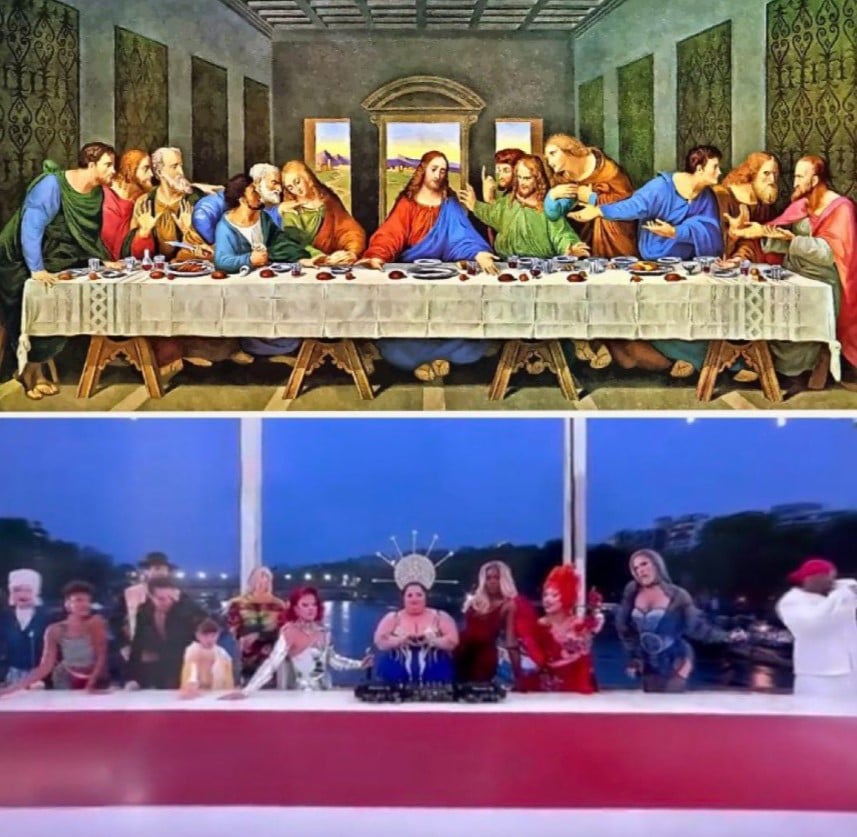
Source: X
According to Vatican News, the French Catholic Church criticised the performance, stating that the opening ceremony “included scenes of derision” and made a mockery of Christianity.
The Anglican Communion in Egypt was also one of the many Christian communities that disapproved of the opening performance.
It expressed “deep regret” and added that the ceremony could cause the International Olympic Committee (IOC) to “lose its distinctive sporting identity and its humanitarian message”.
USA’s speaker of the house, Mike Johnson, also condemned the performance.
In a post on social media platform X, he said the “mockery of the Last Supper was shocking and insulting to Christian people around the world who watched the opening ceremony of the Olympic Games”.
However, the ceremony’s artistic director Thomas Jolly distanced the performance from Da Vinci’s work.
Jolly said that the performance was not meant to “be subversive” or “shock people or mock people”. Instead, it was meant to celebrate diversity.
2. Unbearable heat in the Olympic Village
One of the widely covered controversies at the 2024 Paris Olympics was the poor standards of living in the Olympic Village.
Every Olympic Games, the host country prepares a residential town for the competing Olympians that year.
But the one built in Paris may have fallen short — with complaints concerning the unbearable heat.

Source: Sennse on Olympics
To conserve energy and promote environmental sustainability, the Paris Olympics organising committee chose not to install air-conditioning in the residential units.
Instead, they opted for a geothermal cooling system that pumps water from below the surface.
The technology was not very effective though, with many athletes voicing their concerns about the sweltering heat in the Village as temperatures in Paris pushed into mid-30 degrees Celcius.
“We have fans in the bedrooms, but that’s not enough. It’s too hot at night,” Algerian Olympian Nihed Benchadli told Reuters.
“And we have a little problem, we can’t leave the windows open because of the mosquitoes — too many mosquitoes.”
Italian swimmer and gold medallist Thomas Ceccon also made headlines after being photographed sleeping in a park near the Olympic Village.
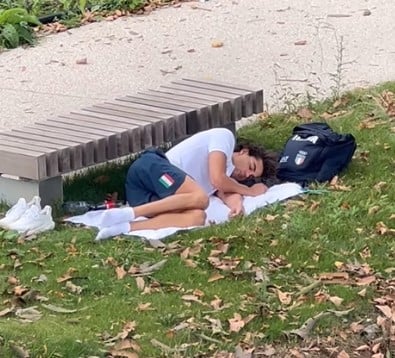
Source: @huseinalireza on Instagram
Ceccon told the local media that he was fed up with the conditions in the Village, claiming that “there is no air conditioning in the village, it’s hot, the food is bad”.
He said it had prevented him from getting proper rest, which may have resulted in his failure to qualify for the 200-meter backstroke final — only days after picking up a gold medal in the Men’s 100m backstroke.
3. Poor food & living conditions in the Olympic Village
As if the lack of air-conditioning was not enough, the residential units in the Olympic Village were also thought to be small and crowded.
In a TikTok video, Team USA’s tennis Olympian Coco Gauff shared snippets of the cramped spaces in the Village.
She captioned the TikTok, “10 girls, two bathrooms”.
@cocogauff
A TikTok user commented on her video saying that they would much rather go to a hotel to which Gauff replied, “All the tennis girls moved to a hotel except me. So now just 5 girls (using) 2 bathrooms.”
Apart from the American tennis athletes, a few South Korean swimmers have also sorted out their own accommodations for the Olympics.
Adding on to the poorly designed and stuffy residential units, the food provided was also reviewed to be below par.
“The catering isn’t good enough for the level the athletes are expected to perform. We need to give the best we possibly can,” said English swimmer Adam Peaty to UK news outlet i paper.
“Tokyo, the food was incredible, Rio was incredible. But this time around, there weren’t enough protein options, long queues, waiting 30 minutes for food because there’s no queuing system.”
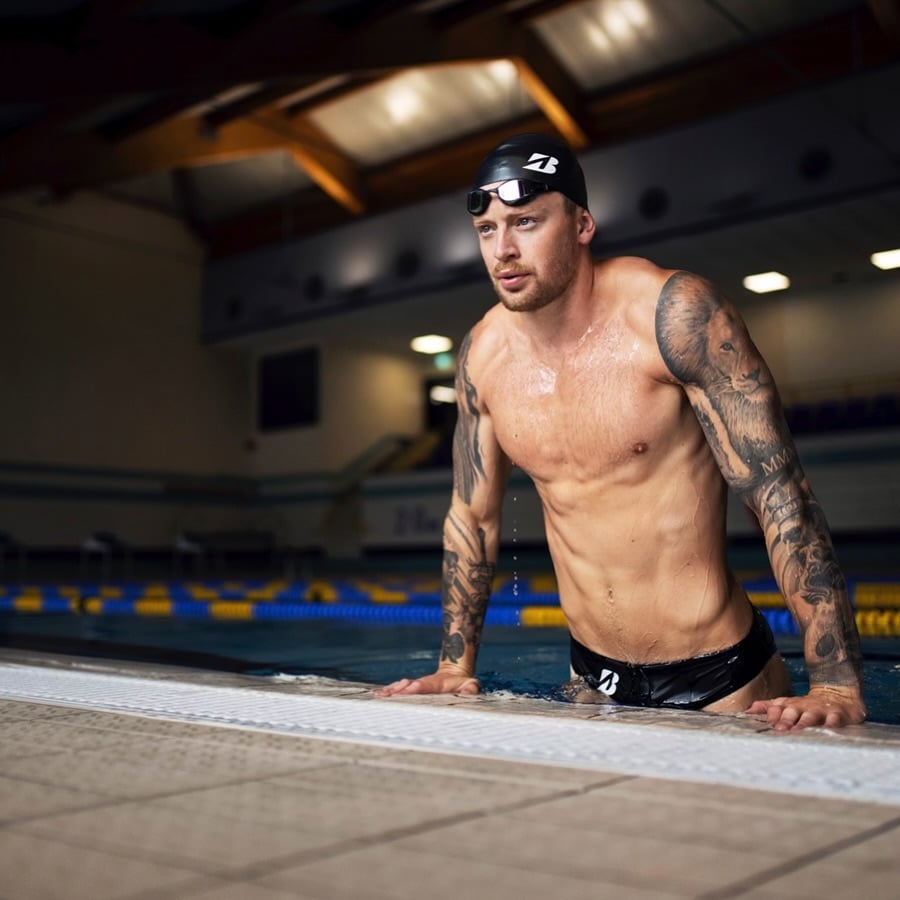
Source: @adam_peaty on Instagram
He was not alone in his complaints about the food.
American rock climber Samuel Watson took to Instagram in a since-expired story to lament the food served in the Olympic Village. He wrote:
“Today at the Olympic Village we’re having probably the blandest piece of turkey with some Dijon mustard. The Dijon mustard really adds to the lack of flavour. And then we have ourselves some plain Greek yoghurt. It really adds to the plain Greek yoghurt experience in the theme of the food.”
4. Allowing the participation of a convicted child rapist
The eligibility of certain Olympians has also sparked controversy.
Particularly in the case of Steven van de Velde, a convicted child rapist who represented the Netherlands in beach volleyball.
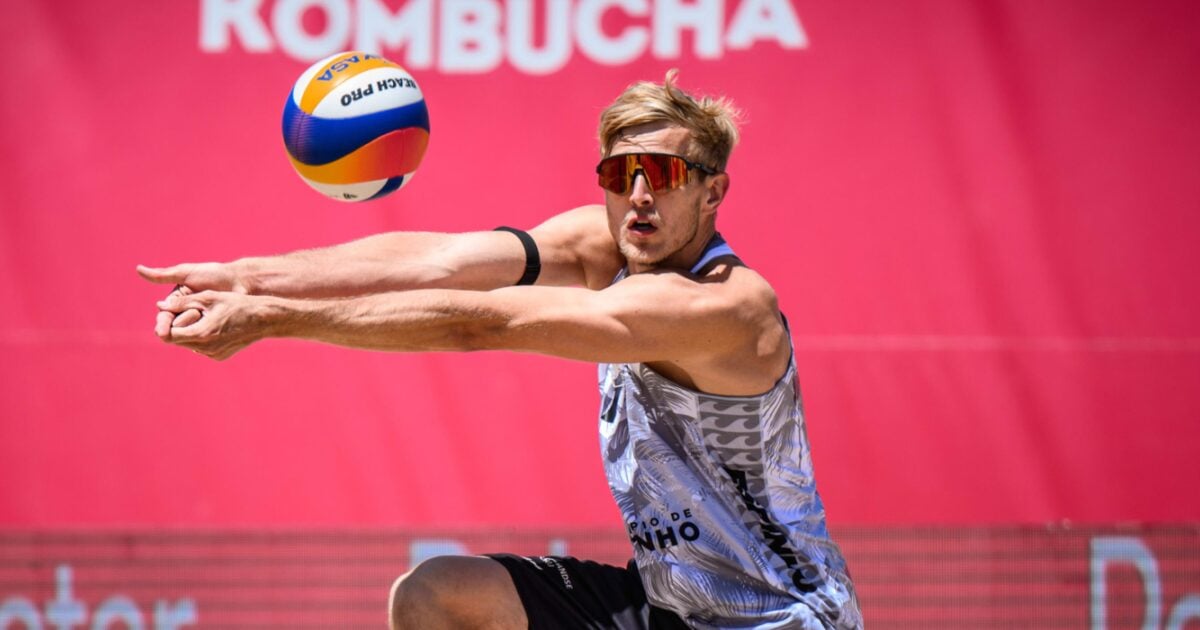
Source: Volleybal NL
Van de Velde was previously charged for raping a 12-year-old girl in 2016.
Having committed the crime in England, he served part of his four-year sentence there before returning to the Netherlands in 2017 under a treaty between the two countries.

Source: South Beds News Agency on The Sun
While his participation in the Olympics was met with disapproval, his team expressed their support stating that ‘the past is in the past’.
He has also received support from the Dutch volleyball association.
Nonetheless, Van de Velde still received countless boos from the crowd during his games in the Paris Olympics.
Channel NewsAsia (CNA) reported that spectators felt he should not be in the Olympics where athletes are seen as examples.
Netizens also agree that Van de Velde’s participation sets a negative precedent that one can be successful despite committing serious crimes.
5. Boxing gender row divides the internet
Another Olympian whose eligibility was questioned was Algerian boxer Imane Khelif.
It all started when Angela Carini, a boxer from Italy, called it quits just 46 seconds into her fight with Khelif.
A tearful Carini said she was “punched too hard” and that she had never felt a punch like that in her career.
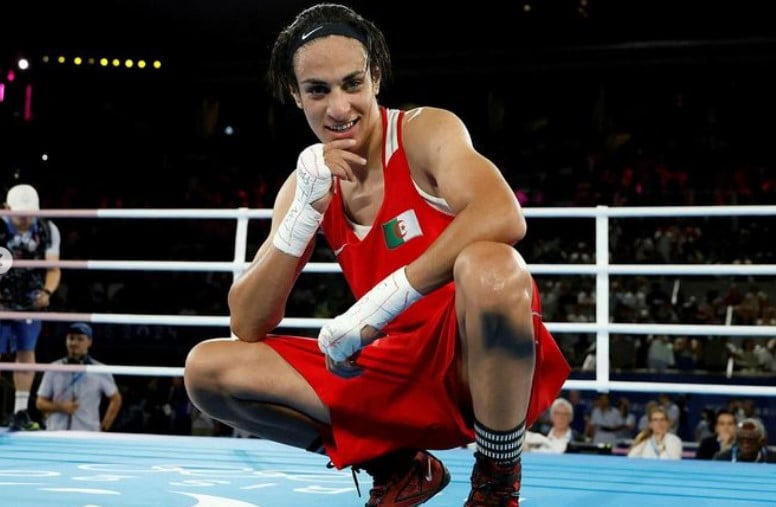
Source: @peter_cziborra on Instagram
Following the match, rumours ran rampant about Khelif’s gender, with billionaire Elon Musk and author J.K. Rowling chiming into the discourse.
The latter went so far as to call Khelif a male.
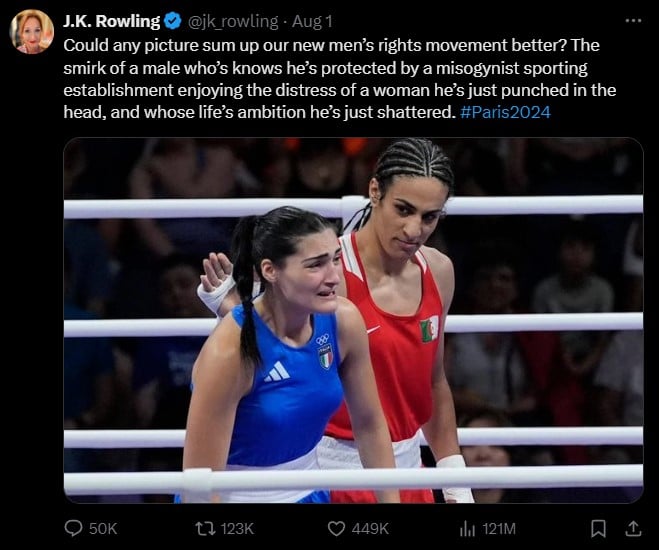
Source: X
The situation escalated when it was found that Khelif was disqualified from the 2023 World Championships for failing gender eligibility tests.
According to AP News, these tests remain unspecified and unproven.
The IOC then addressed the issue, confirming that Khelif is a biological female and had also lived her life as a woman.
IOC President Thomas Bach also condemned the online vitriol directed at Khelif during the Paris Olympics.
Despite the controversy surrounding her, Khelif emerged victorious in the ‘Women’s Welterwight’ category, defeating China’s Yang Liu to win the gold medal.
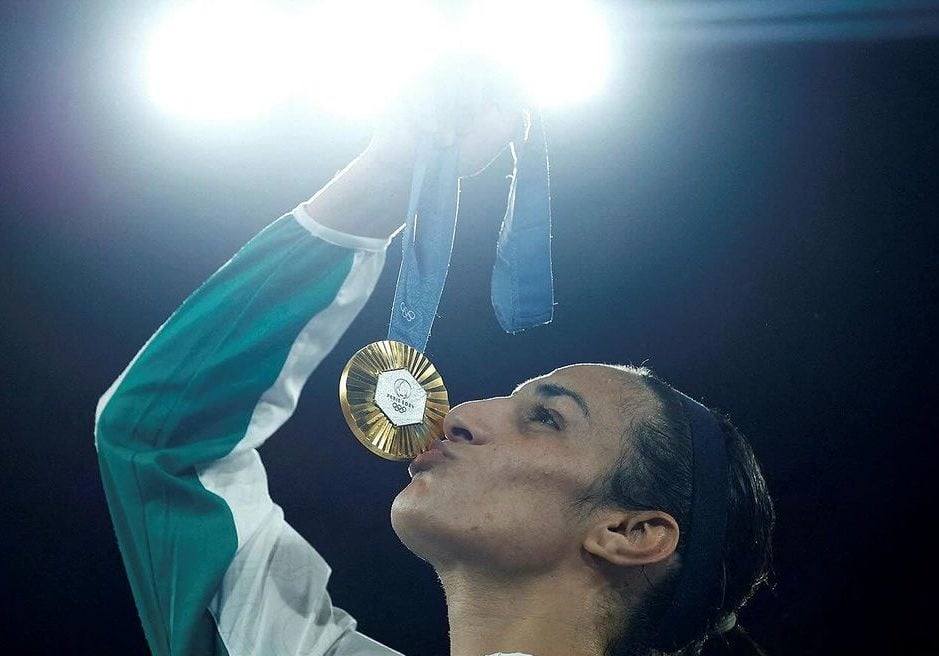
@peter_cziborra on Instagram
Khelif has since taken action against those who had slandered her in a cyberbullying lawsuit.
French prosecutors have opened an investigation on charges of “cyber harassment based on gender, public insults based on gender, public incitement to discrimination and public insults on the basis of origin”.
6. Ban of hijabs for French athletes
Host country France was also criticised for banning its Muslim national athletes from wearing their religious headscarves — also known as hijabs.
In a statement sent to NPR, IOC said that France considers their athletes civil servants.
“This means that they must respect the principles of secularism and neutrality, which, according to French law, means prohibition from wearing outwardly religious symbols, including the hijab, veil, and headscarf when they are acting in their official capacity and on official occasions as members of the French national team,” the statement read.
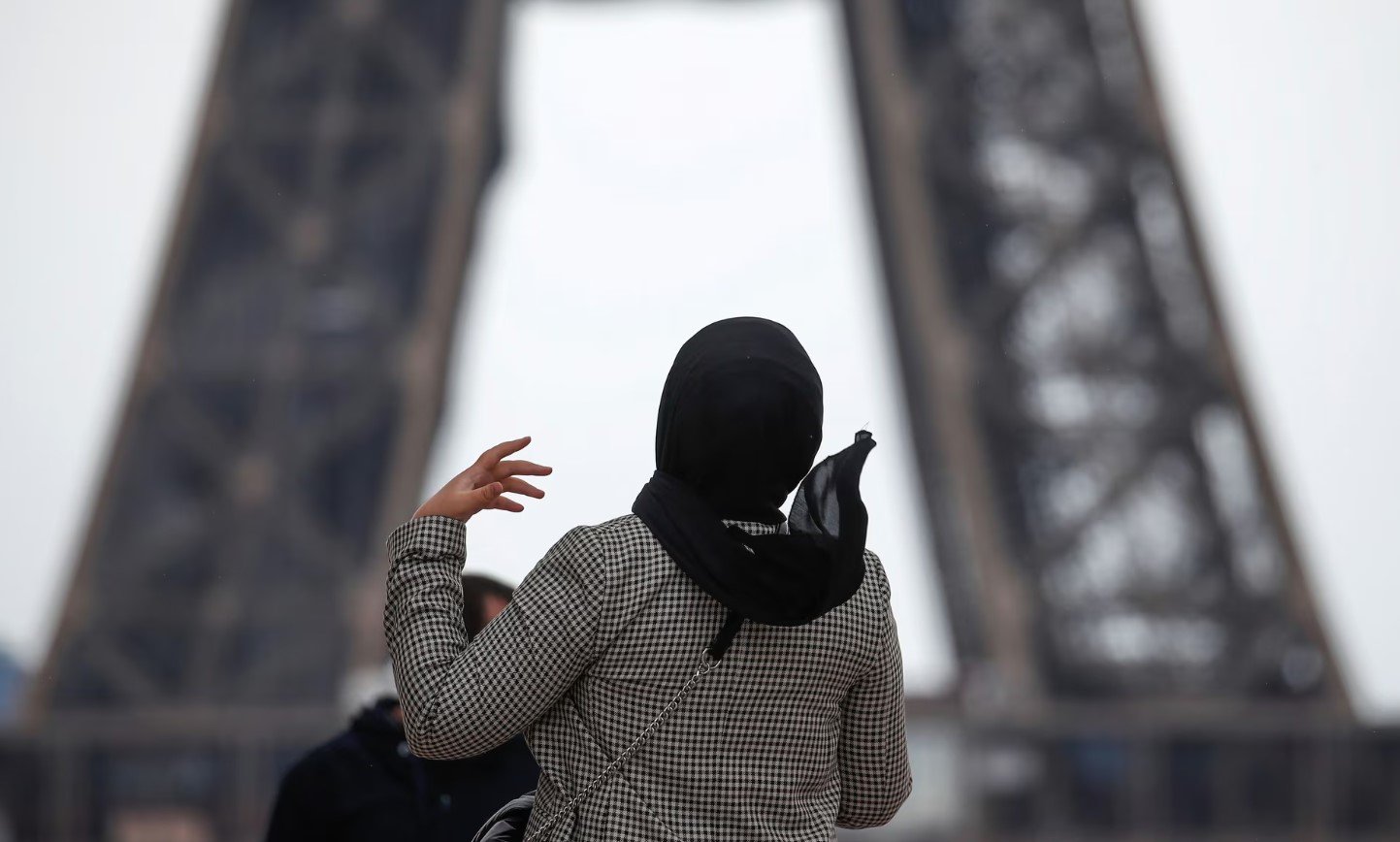
Source: Reuters
Anna Błuś, a researcher from human rights organisation Amnesty International, said that the ban on hijabs for French athletes made a “mockery of claims that Paris 2024 is the first Gender Equal Olympics”.
She noted that it “lays bare the racist gender discrimination that underpins access to sport in France”.
Olympic athletes have also spoken out about the ban — particularly the Muslim female beach volleyball players from Egypt.
Speaking to CNN, Doaa Elghobashy expressed that athletes should be able to wear whatever they want.
“I want to play in my hijab, she wants to play in a bikini,” she said.
“Everything is OK, if you want to be naked or wear a hijab. Just respect all different cultures and religions.”
7. Drone used to spy on opponent in women’s football
The Canadian women’s football team was caught in a spying scandal this Olympics after they used a drone to observe New Zealand’s training session.
The defending Olympic champions eventually beat New Zealand 2-1 in the opening game.
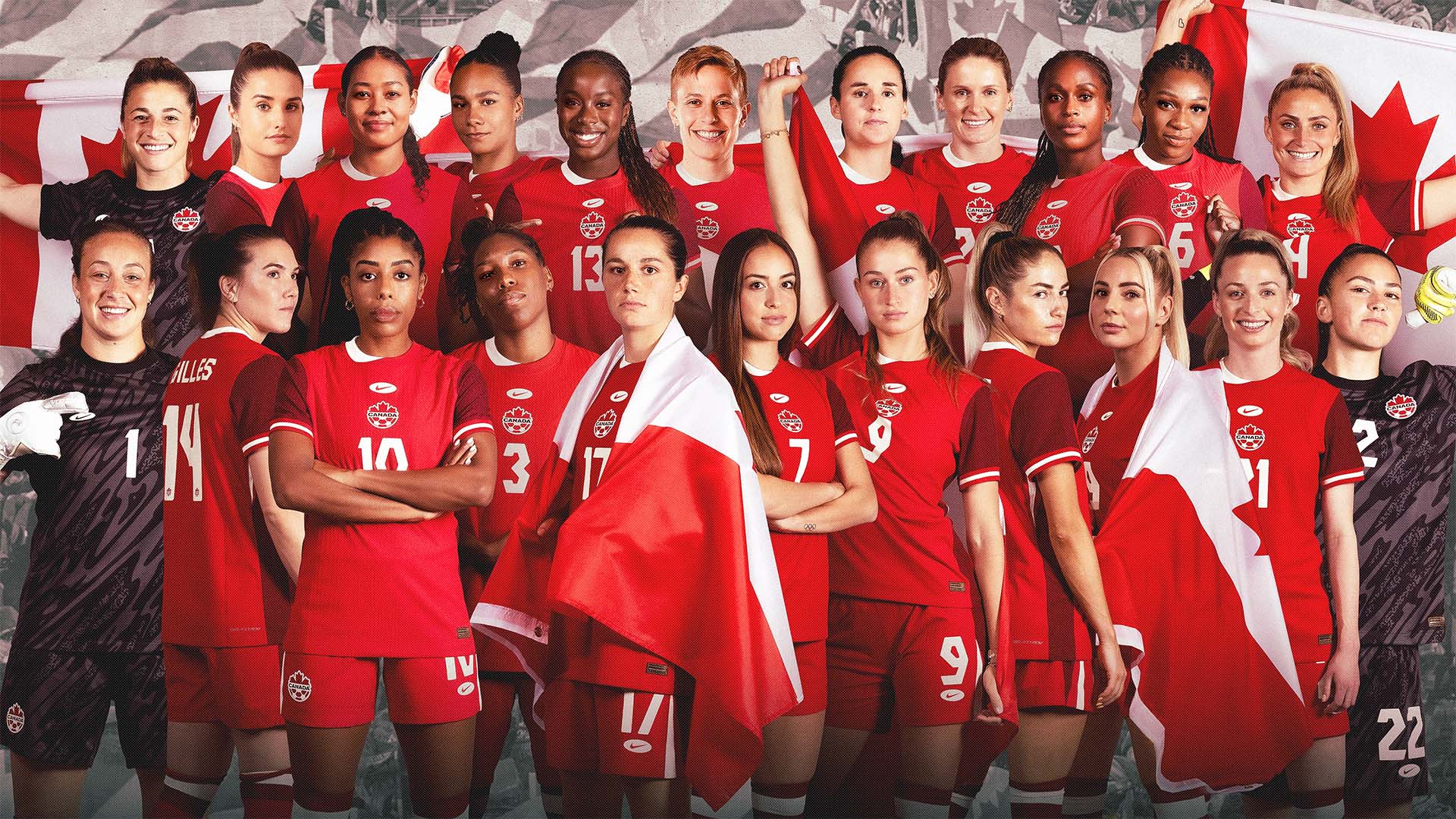
Source: Canada Soccer
Following complaints from New Zealand, the team received a six-point penalty, with their coach, Bev Priestman, receiving a one-year ban.
While the latter has taken responsibility for the transgressions, the players claimed that they were clueless.
Despite the six-point deduction, the Canadians still managed to secure a spot in the quarter-finals, with consecutive victories against France and Colombia in the group stage.
They eventually bowed out of the tournament after losing to Germany in the final 8.
AP News reported that Canadian officials admitted to football governing body FIFA that spying on opponents was routinely done for both the men’s and women’s national teams.
8. Gymnast asked to return Olympic medal
In the Women’s Floor gymnastics final held on 5 August, American gymnast Jordan Chiles initially scored 13.666, landing her fifth in the competition.
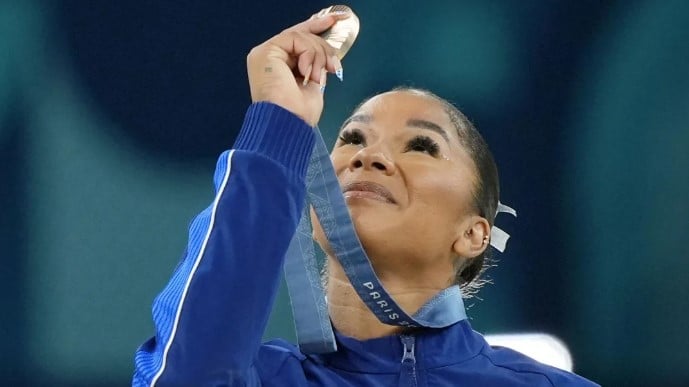
Source: @guygruber on Instagram
However, after an inquiry by Chiles’ coach, Cecile Landi, with regard to her difficulty rating, officials upgraded Chiles’ score to 13.766, placing her in third.
According to BBC, the change in results left Romanian gymnast Ana Bărbosu, who had begun to celebrate her medal, devastated and led to a protest from the Romanian team.
Romania’s prime minister, Marcel Ciolacu, called the situation “scandalous” and threatened to boycott the closing ceremony.
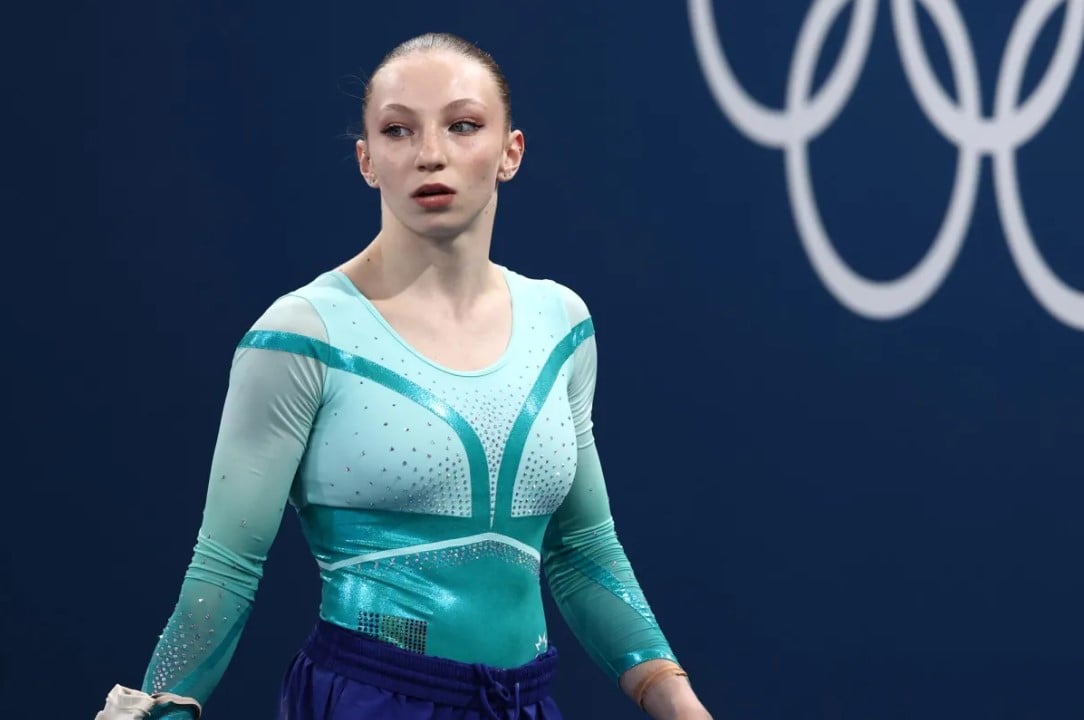
Source: Getty Images
International Gymnastics Federation regulations allow a coach to challenge a difficulty score “provided that they are made verbally immediately after the publication of the score.”
According to the guidelines, a coach has one minute after the score is shown to make a verbal inquiry for the last gymnast in a rotation.
As Landi submitted the enquiry four seconds after the 1-minute threshold, the Romanian Olympic Committee successfully appealed the decision to the Court of Arbitration for Sport (CAS).
This appeal was successful and reinstated Bărbosu’s bronze medal.
The medal reallocation ceremony will be held on 16 August in Bucharest where Bărbosu will be awarded a bronze medal.
Also read: Real-life ‘Mission Impossible’: Tom Cruise abseils off stadium roof in Paris Olympics finale
Real-life ‘Mission Impossible’: Tom Cruise abseils off stadium roof in Paris Olympics finale
Have news you must share? Get in touch with us via email at news@mustsharenews.com.
Featured image adapted from Getty Images and @peter_cziborra on Instagram.
